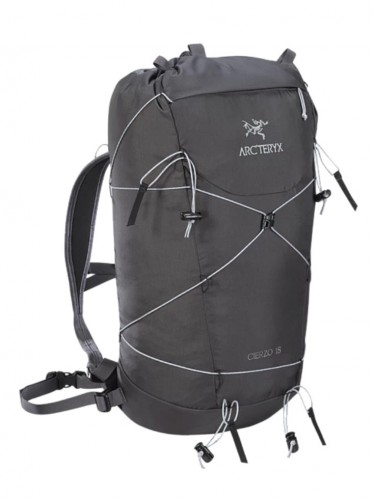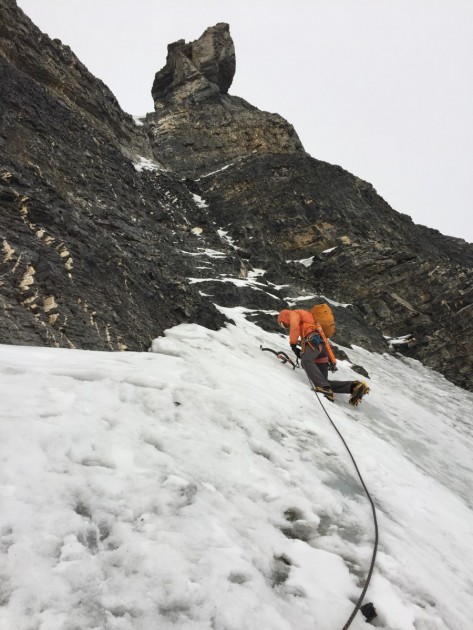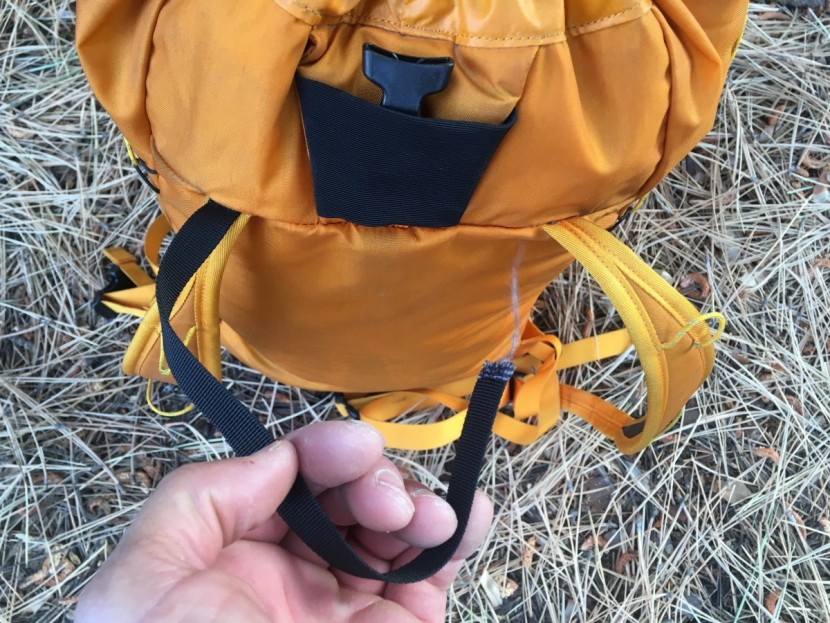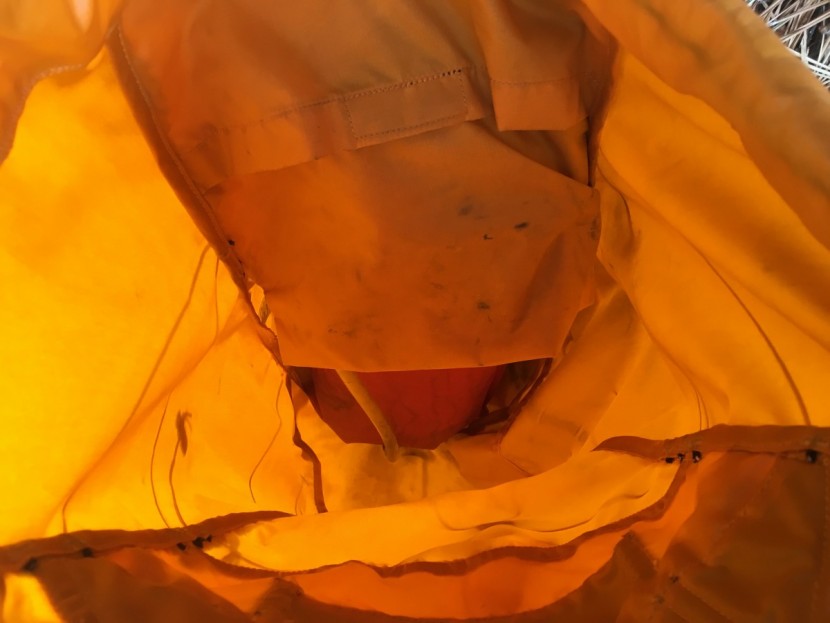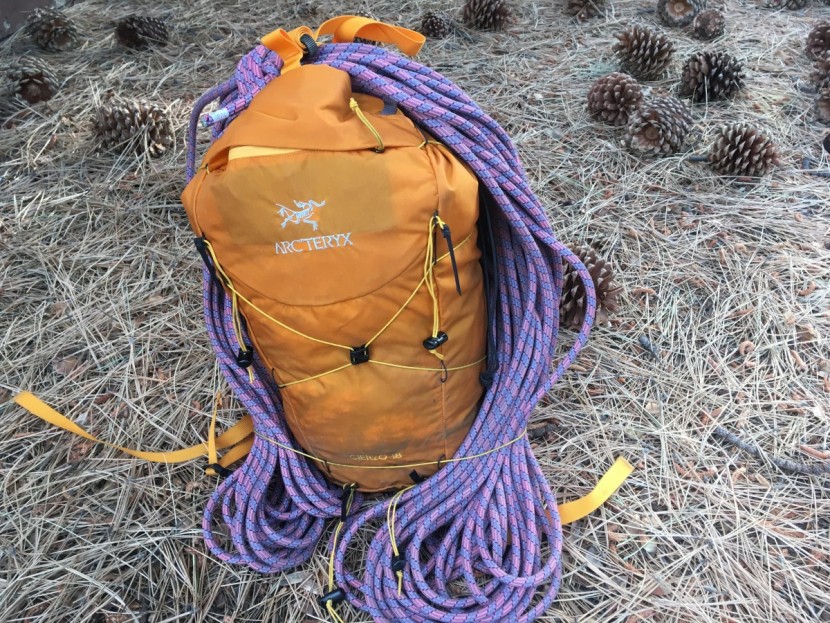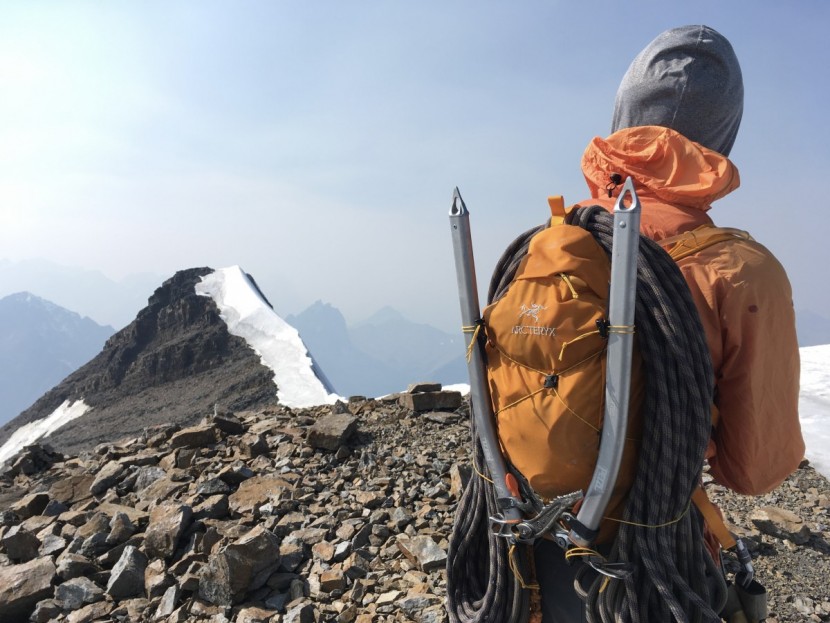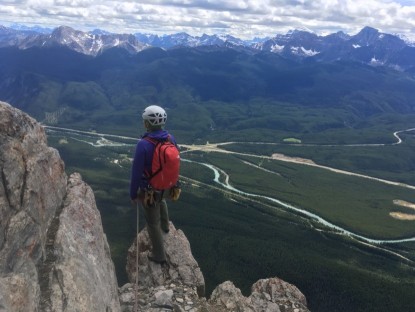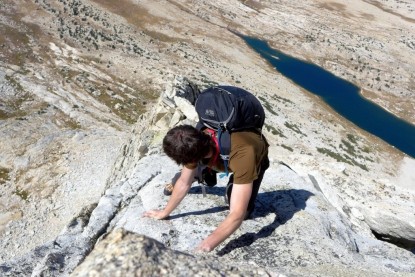The Arc'teryx Cierzo 18 is one of the lightest packs in our test. It feels like this pack is designed for a fast-and-light alpine mission where it's okay if some of the gear gets wrecked. This pack has some well-thought-out features, but durability and comfort are not prioritized.
If you spend more time climbing rock than ice and snow, we'd recommend the Patagonia Linked. The REI Co-Op Flash 18 can also double as an ultralight summit pack.Arc'teryx Cierzo 18 Review
Our Verdict
Our Analysis and Test Results
The Arc'teryx Cierzo 18 is a climbing pack with a distinct alpine focus. It's the second lightest pack in our review, but it also has more features than any other model. Our testers found some of the features hard to use and were concerned about the overall durability.
Weight
At 13 ounces, the Cierzo 18 is the second lightest pack in our review. It weighs about three ounces more than the lightest, the REI Flash 18. What's impressive is that with only three additional ounces, the Cierzo packs in a bunch more features and slightly more durable fabric. A couple of ounces can be shed from the pack by removing the hip belt, sternum strap, and SwiftCord compression system.
Durability
Durability is one of our testers' big concerns with the Cierzo 18. The fabric is one of the lower denier fabrics in the review (210D) and is not reinforced anywhere on the pack. Since weight is prioritized over durability with this design, we advise against hauling or chimneying.
On the second day of testing, one of our testers ripped the haul loop out of the pack while packing it. Though we had no other durability issues and we suspect this is an isolated incident, this raised some suspicion about all of the bits of cord and toggles on the pack. The Patagonia Linked is made of more durable fabric and has fewer small parts to break.
Climbing Utility
This pack has almost all of the features we liked on the other packs in the review and then some. It has the hydration features we've come to expect, and a hydration reservoir hangs behind the internal pocket instead of in front of it, which blocks access. This is a helpful touch, especially since the key clip lives in that pocket. However, both the internal and external pockets on the pack are frustratingly difficult to use when the pack is full.
The size of the haul loop is generous and easy to grab with a gloved hand. Two small, grey, webbing loops on the front of the pack can be equalized with the haul loop with additional cordage or slings. The SwiftCord compression system and the ice tool carry system are both likely snag points for hauling, bushwhacking or rowdy rock climbing. Luckily, they ar both removable.
The SwiftCord drawstring system serves to compress the pack and allows gear to be strapped to the outside. The cord lock that adjusts the system lives in the external zippered pocket and is annoying to access when the pack or that pocket if full. It took longer and was more cumbersome to use than the traditional compression strap system found on the Petzl Bug.
We liked the easy open and closure system on the central opening. This tapered shape of this pack makes it reasonably easy to pack and unpack, and the yellow (Arc'teryx calls it "madras") color we tested it in allows for excellent interior visibility.
Versatility
While this model would have no problems with trips to the coffee shop or grocery store, some testers think it looks a bit too technical to be go-to around town pack. The alpine focused feature set of this pack makes it an obvious choice for climbs involving ice and snow. However, the SwiftCord drawstring system isn't particularly glove-friendly.
The light weight and low bulk of this pack make it an excellent choice to stuff into a larger pack for extended backcountry forays. It's only slightly more bulky in a bigger pack than the REI Flash 18.
The top features a compression strap that easily secures a rope, and the ends of the rope can be tucked into the SwiftCord system. Though we find it problematic to use, once everything is in place, it carries the end of the rope, an extra layer, or a pair of crampons securely.
Comfort
Comfort is the other big weakness of the Cierzo 18. The shoulder straps are strategically tapered, which shaves a few grams off the pack. However, our testers came in many shapes and sizes, and none of them could adjust the shoulder straps in a way that would provide comfort. This affected the comfort aspect when climbing and hiking.
The only time the shoulder straps were comfortable was when the load in the pack was minimal, say, two liters of water, some snacks, and a few layers. Toss much more in there, or add the rope on top, and the load became less comfortable.
The back panel of this pack is completely unpadded. If you're using a hydration system or you're a careful packer, this shouldn't be a problem.
Best Applications
This pack is an excellent choice for routes and conditions that don't require particularly heavy loads. Its feature set lends it to climbs that call for ice and snow gear, where the pack will come into minimal contact with rock.
Value
At $99, the Cierzo 18 is on the pricier end of the spectrum in this review. If you're mainly rock climbing, you can spend less and get more. If you need a small climbing pack that's got more of an ice and snow focus, this could be a good value.
Conclusion
While the Arc'teryx Cierzo 18 is quite light and has some good features, others fall flat, and our testers have some concerns about durability. We had a difficult time adjusting this pack for comfort in any situation.
Other Versions and Accessories
Arc'teryx makes this pack in a 28L version that has removable foam padding in the back.


